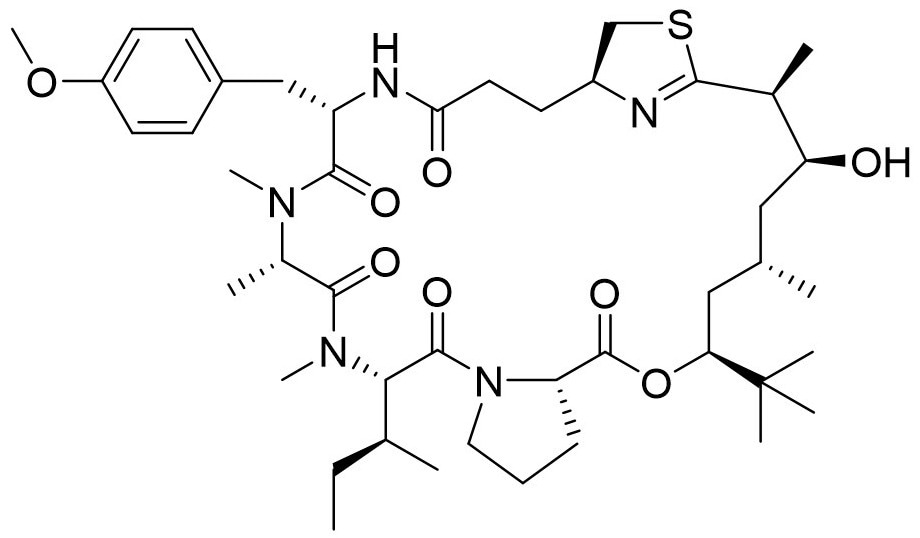People are realizing now, more than two years into the COVID-19 disease outbreak, that the “new normal” will most likely involve practicing to coexist with SARS-CoV-2. Some treatment options are available, but as new variants emerge, scientists are looking for novel approaches.
 Apratoxin S4 (structure shown here) is effective against SARS-CoV-2 in human cells and could be a pan-viral therapeutic. Image Credit: Adapted from ACS Infectious Diseases
Apratoxin S4 (structure shown here) is effective against SARS-CoV-2 in human cells and could be a pan-viral therapeutic. Image Credit: Adapted from ACS Infectious Diseases
Researchers suggest in the journal ACS Infectious Diseases that apratoxin S4, an anticancer drug candidate that attacks a human protein, can intrude with the replication of many viruses, such as SARS-CoV-2 and influenza A, suggesting a potential pan-viral therapy.
Although COVID-19 vaccines are available, some people who received them have become ill with the disease, and only a small percentage of the world’s population is vaccinated.
As a result, treatments are still required, and a few are now accessible that target the virus’s RNA polymerase—the enzyme it uses to produce more of its RNA inside human cells. However, some of these drugs, like remdesivir, do not work unless given at a preliminary phase and may necessitate injections.
Different teams have revisited drugs that are already recognized to combat other diseases in the search for new ways of treating COVID-19, a strategy known as “repurposing.”
Apratoxin S4 (Apra S4), a molecule based on a natural product with anticancer activity, is one such preclinical phase compound. Prior studies have shown that apratoxins can aim the human protein Sec61, which guarantees that proteins are appropriately glycosylated and folded.
Since viruses lack the necessary machinery, they hijack the procedure and push human cells to produce functional viral proteins. Since Sec61 is required for the influenza A, HIV, and dengue viruses to infect, Hendrik Luesch and coworkers began to wonder if apratoxins could be a widely efficient, pan-viral medication that could also fight SARS-CoV-2.
In exams with the monkey and human cells infected with SARS-CoV-2, the scientists found that Apra S4 treatment decreased the number of infected cells compared to remdesivir therapies. The molecule was also useful against infections caused by influenza A, Zika virus, dengue, and West Nile virus.
Apra S4 did not stop SARS-CoV-2 from entering cells, but it did decrease the amount of viral protein made and transported in cells, particularly the spike protein, as well as viral RNA replication. Using electron microscopy, the researchers discovered that Apra S4 also inhibited the growth of new viruses, with many vesicles in SARS-CoV-2-exposed monkey cells containing no or very few brand-new viral particles.
More research is required, according to the scientists, but these findings suggest that Apra S4 and other inhibitors of the human Sec61 protein are broad-acting antivirals that could aid in the battle against upcoming pandemics.
Source:
Journal reference:
Pohl, M. O., et al. (2022) Sec61 Inhibitor Apratoxin S4 Potently Inhibits SARS-CoV-2 and Exhibits Broad-Spectrum Antiviral Activity. ACS Infectious Diseases. doi.org/10.1021/acsinfecdis.2c00008.